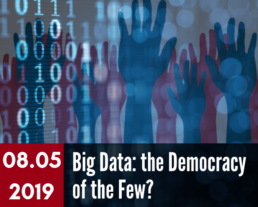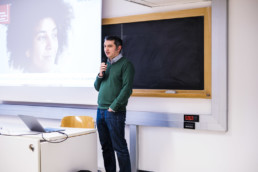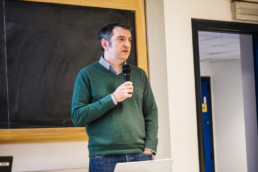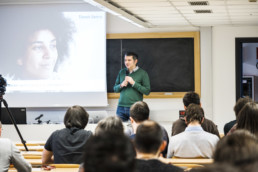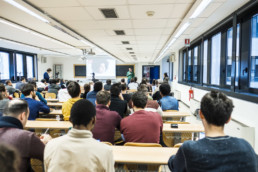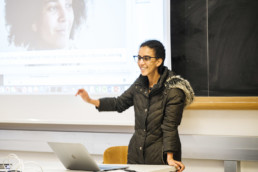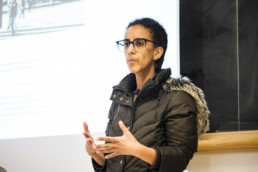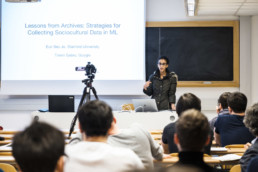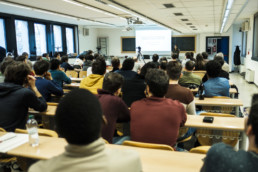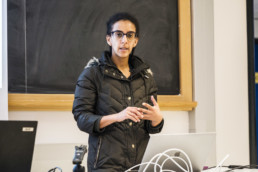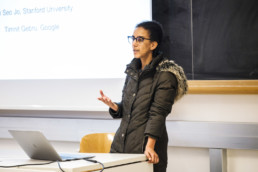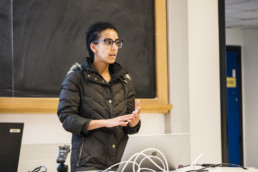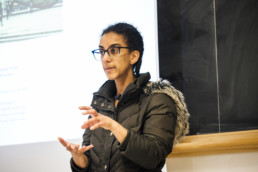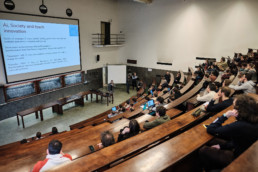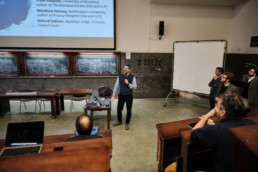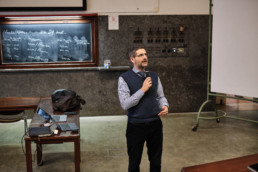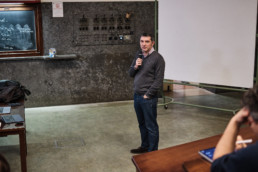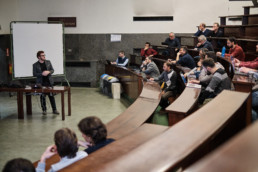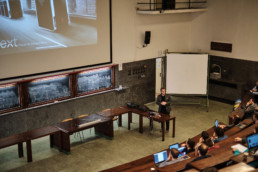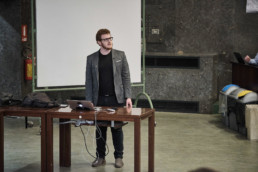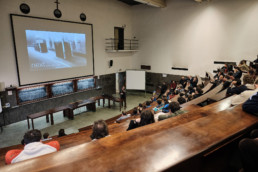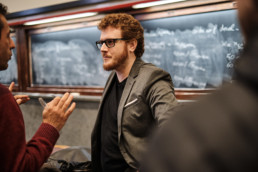The Role of Law, Norms, and Technology in Contact Tracing
The Role of Law, Norms, and Technology
in Contact Tracing
Join us for a roundtable discussion of these topics with Lamberto Ballan (University of Padua), Andrea Pin (University of Padua), Elisa Spiller (University di Padova), Felicia Caponigri (Notre Dame Law School), Kirsten Martin (Notre Dame Mendoza College of Business), Mark McKenna (Notre Dame Law School) and Prof. Giuseppe Sartori (General Psychology Dept., University of Padova).
Live: July 22, 2020 - h. 16:00 pm (Italian time)
Italy’s suffering and courage in the face of the coronavirus pandemic were evident to an American audience earlier this Spring. As time has progressed, the country has passed the curve’s peak and is now reopening and entering a new normal and rhythm of daily life. Part of the daily changes includes the use of a new contact tracing app, “Immuni”, developed by a private company and promoted by the Italian government. The app’s development has been shaped by EU privacy law and Italian law, and the country is currently affronting how to use it effectively. Central to this use are questions of efficacy and privacy, compliance, and even cultural norms. Within the parameters of privacy, fundamental rights, and cultural habits, can Immuni be effective? What role might law, and the technology it shapes, continue to have in our fight against the coronavirus?
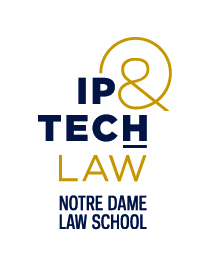

Felicia Caponigri
Program Director, Program on Intellectual Property & Technology Law
Acting Director, International and Graduate Programs

Mark McKenna
John P. Murphy Foundation Professor of Law
Director, Notre Dame Technology Ethics Center
Director, Program on Intellectual Property & Technology Law

Kirsten Martin
Lindner-Gambal Associate Professor of Business Ethics and chair of the Strategic Management and Public Policy Department at the George Washington University’s School of Business

Giuseppe Sartori
Neural basis of intentions and conscious decisions. Memory detection and the Implicit Association Test. Child testimony. Malingering. Natural capacity Parenting. Psychopathy and behavioural genetics. Mental insanity and reduced capacity.
COVID-19, A.I.,Apps, and Fundamental Rights: A Transatlantic Dialogue
COVID-19
A.I.,Apps, and Fundamental Rights: A Transatlantic Dialogue
Live: May 5, 2020 - h. 17:00 pm
The seminar will be live-streamed on You Tube at "Aula Rostagni UniPadova DFA"
Fighting the pandemic is pitting health and privacy against each other in largely unprecedented ways. A conversation between two prominent legal thinkers will compare the approaches to contact tracing apps and mass surveillance in the United States and the European Union.
We will begin the seminar by asking our guests the following questions:
Within the West, many countries and supranational legal systems are struggling to find ways to reconcile the fight against the COVID-19 with the needs of preserving fundamental rights, such as privacy, mobility, etc. A lot of debates revolve around the deployment of AI-based technologies, which track down people and contagion, as they would make extreme physical constraints, such as lockdowns, unnecessary. What are the main legal issues within the EU and the U.S. that such possibilities need to face?
As we expect that the virus will stay with us for long, we are likely to need digital tools for long as well. Once the Schengen treaty returns in full force and EU citizens resort to moving quite freely within EU territories, the apps we are thinking of will ensure inter-state tracing? Is the US facing with analogous issues of decentralization?
It is rather frequent to hear the opinion that we are overestimating the issues of privacy, given the importance of health. Moreover, it is common parlance that the big tech companies already know so much about us, that is paradoxical to fear the Government and massive utilization of data to fight the virus. Are privacy issues almost fictional, in light of the tech giants’ omnipotence?

conference speaker
Woodrow Hartzog
Professor of Law, Northeastern University, Boston

Oreste Pollicino
Professor of Law, Bocconi University, Milano

Lessons from Archives: Strategies for Collecting Sociocultural Data in ML
Algorithmic Bias and Fairness
Strategies for Collecting Sociocultural Data in Machine Learning
WHEN: Monday 3 February 2020 at 1.30 pm
WHERE: Aula 1A150, Math Dept. "T. Levi-Civita"
A growing body of work shows that many problems in fairness, accountability, transparency, and ethics in machine learning systems are rooted in decisions surrounding the data collection and annotation process. We argue that a new specialization should be formed within machine learning that is focused on methodologies for data collection and annotation: efforts that require institutional frameworks and procedures. Specifically for sociocultural data, parallels can be drawn from archives and libraries.
Archives are the longest standing communal effort to gather human information and archive scholars have already developed the language and procedures to address and discuss many challenges pertaining to data collection such as consent, power, inclusivity, transparency, and ethics privacy. We discuss these five key approaches in document collection practices in archives that can inform data collection in sociocultural machine learning.
conference speaker
Timnit Gebru
Timnit Gebru is the technical co-lead of the Ethical Artificial Intelligence Team at Google. She works on algorithmic bias and data mining. Timnit earned her doctorate under the supervision of Fei-Fei Li at Stanford University in 2017. She is an advocate for diversity in technology and is the cofounder of Black in AI, a community of black researchers working in artificial intelligence.

Next Future Transportation
Next Future Transportation
WHEN: Tuesday 14 January 2020 at 2.30 pm
WHERE: Aula Rostagni, Physics and Astronomy Dept.


conference speaker
Tommaso Gecchelin
Tommaso Gecchelin is a physicist and industrial designer from Padua, in Italy. He’s the founder, inventor and CTO of Next Future Transportation inc. developing modular autonomous pods. His mission is to merge science and design to create useful and elegant solutions to solve major world problems in the field of logistics and transportation, politics and decision making, environment and sustainability.
Artificial Intelligence and Big Data: a Paradigm Shift for All
Artificial Intelligence and Big Data:
a Paradigm Shift for All
Artificial Intelligence (A.I.) was born in 1956, at a major conference in computer science during which Professors John McCarthy, Marvin Minsky, Herbert Simon, among others, compiled a list of objectives for the following years goals of the research in AI. 20 years later, most of these goals were still beyond reach. Now, most of us perform the A.I. 1956 wish list on a daily basis using our smart phone.
What has made this achievement possible? Contemporary A.I. is powered by statistical methods and fuelled by large amount of data, known as Big Data. Big data and machine learning impact on business as well as on other several aspects of society, prompting numberless and umpredictable changes in legal, economic, and cultural fields.
With this introductory seminar, we aim to provide an overview of the paradigm shift occurred in the field of AI and of the AI-induced radical transformations that are moving ahead at full speed, showcasing the main challenges to which the lecture series will later devote a specific focus.
Speakers: Andrea Pin and Samir Suweis
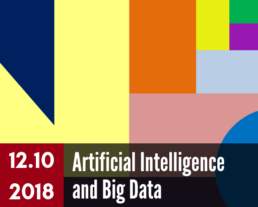
Under the Hood of Big Data and Artificial Intelligence
Under the Hood of Big Data and Artificial Intelligence
Big Data and Artificial Intelligence have nowadays a huge impact in almost all scientific disciplines and, more in general, to our society.
Many are claiming that data is the “new oil”, and the data-driven / machine-learning paradigm is changing how we address many different problems. Self-driving cars, robot caregivers and chatbot platforms are really happening, while they were only popular sci-fi topics until a few years ago. Deep Neural Network architectures – trained on very large datasets (e.g. ImageNet) onto fast dedicated hardware (e.g. GPUs) – are the most popular approach and the main reason why machines can now recognize objects in an image, and translate speech in real time.
However, despite the impressive achievements of these technologies, big data and AI are often used and referred as to “black boxes”. The aim of this lecture is to introduce the key concepts that have led to the recent success of these techniques, to highlight what are the main challenges and open problems, thus trying to unveil what’s in the box.
Speaker: Lamberto Ballan
When: 9 November 2018, 12.30
Where: Aula Rostagni, Physics and Astronomy Dept., Via Paolotti 9, 35131, Padova
Check out the video of the presentation!
Here the slide with references:
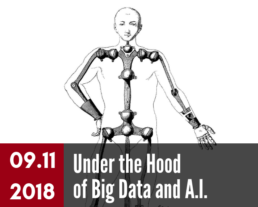
The Unconstitutional Algorithm: Artificial Intelligenceand the Future of Fundamental freedoms
The Unconstitutional Algorithm: Artificial Intelligenceand the Future of Fundamental freedoms
Contemporary A.I. is powered by entirely new statistical methods and fuelled by a large amount of data, known as Big Data. Big data and machine learning impacts on business as well as on other several aspects of society, are prompting challenging shifts in decision-making processes, legal one included as some recent cases demonstrated.
An increasing role it is played by so called “predictive algorithms”, sort of contemporary oracles able to predict accurately the future but never saying why. In the lecture, I argue that constitutional law – if it wants to keep its own aim, that is regulating powers in order to protect freedom – must reflect on when and how to limit the asymmetry of power inevitably caused by differences in capability of computational power and data availability and on the discriminatory outcomes produced by decisions taken relying on biased algorithms.
By presenting some recent cases, I will highlight some critical aspects of the application of AI on judicial and administrative decisions with a particular focus on the problem of training bias. I’ll conclude reflecting on the radical transformations that are moving ahead at full speed, showcasing the main challenges that only through interdisciplinary approaches can be effectively tackled and outlining some of the fundamental principles of the “new constitutional law of the cybernetic era”
Speaker: Andrea Simoncini, University of Firenze
Date: 07/12/2018 12.30. Aula A, Physics and Astronomy Dept.
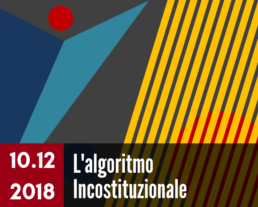
Big Data Governance Beyond Personal Data
Big Data Governance Beyond Personal Data
The echo of the new GPDR gives the impression that the legal issues about big data will concentrate on personal data. The approach is mainly due to the acknowledged importance of the EUCFR, article 8, which suggests and consolidates this idea of data governance.
Big data, however, impact other different domains, going beyond personal data. This perspective, therefore, risks being misleading and neglects other relevant aspects.
Data, indeed, have significant legal interests for different reasons (e.g. openness and transparency of government or secrecy for security or commercial purposes) and their informational and computational power may affect further relevant fundamental rights.
The lecture aims to analyze this broader scenario, considering these other themes historically related to data protection (e.g. copyrights and trade secrets; database establishment; public/private re-use of information; intelligence issues; non-personal data regulation).
The final objective is to offer a more clear and comprehensive understanding of the current state of the art, highlighting the possible developments in the regulation of these fields.
Introduce: Andrea Pin
Speaker: Elisa Spiller: University of Padua, Dipartimento Di Diritto Pubblico Internazionale Comunitario, PhD student
When: 28/02/2019, 12:30.
Where: DIPARTIMENTO DI DIRITTO PUBBLICO, INTERNAZIONALE E COMUNITARIO Via 8 Febbraio, 2 – 35122 Padova – Aula Mocenigo.
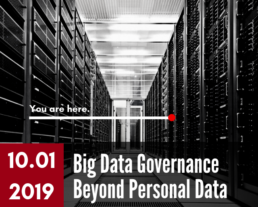
The Era of Mass Data Litigation
The Era of Mass Data Litigation
A new wave of mass litigation has begun all over the world as far as the processing of big data is concerned: many companies operating social networks or providing services through the web are allegedly violating the privacy rights of myriads of people and therefore being named in civil proceedings.
While data breaches may cause limited, if any, damage to a single individual (making them unlikely to bring individual claims), aggrieved groups affected by the breach may seek compensation for the aggregate damage via class actions. Recently Mr. Schrems, a young Austrian activist and lawyer, brought an action before the Regional Civil Court of Vienna against Facebook Ireland Limited, alleging that the defendant had committed numerous infringements of data protection provisions and seeking compensation for the damages suffered by him and thousands of other Facebook users. In addition to this lawsuit, similar proceedings against Facebook, Whatsapp, Instagram, and Google have been commenced in France, Belgium, Germany and also in Italy.
In the United States, Facebook Inc. and the political consulting firm Cambridge Analytica have been sued for obtaining information from 50 million of the social media company’s users without permission. Facebook is also facing a class action in the Northern District of California for other alleged misconduct including unfair and fraudulent business practices, consumer bait-and-switch, and invasion of privacy.
Furthermore, focusing on cryptocurrencies, Mt. Gox, one of the biggest bitcoin exchanges based in Tokio, is facing bankruptcy procedures both in Japan and the United States after the loss of 850,000 bitcoins, valued at more than $450 million at the time, stolen due to a massive hack in 2014. In September 2018 Mt.Gox’s bankruptcy and rehabilitation trustees reported that they had collected more than 617 million dollars, which could be sufficient to reimburse claims completely and invited the investors, in accordance with the Civil Rehabilitation Act of Japan, to file rehabilitation claims. After this announcement the US investors have asked the federal court in California for a stay in the case sued against Mt.Gox until February 28, 2019 in order to get a clear picture over whatever they are going to be compensated in full or partially.
This seminar is an opportunity for lawyers, scholars, and students to discuss, study and reflect on the main procedural issues that have emerged in these cases both with regards to the problems inherent to the aggregate treatment of individual claims and with reference to the new challenges imposed by the processing of massive amounts of personal data in the digital age.
When: 22/03/2019, 10:30/12:30.
Where: DIPARTIMENTO DI DIRITTO PUBBLICO, INTERNAZIONALE E COMUNITARIO Via 8 Febbraio, 2 – 35122 Padova – Aula Valente.
Clicke here to download the poster of The Era of Massa Data Litigation.
![]() Click on the title to download the slideshow presentation:
Click on the title to download the slideshow presentation:
Italian class action litigation – B. Zuffi
The Multidistrict litigation against facebook – L. Ferrarese
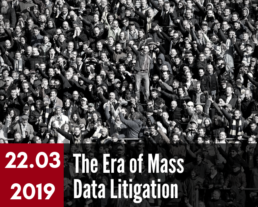
The Rise of Machines and the Disruption of Law
The Rise of Machines and the Disruption of Law
This lecture outlines how machines are coming both to disrupt the legal profession and to change the optimal form of law. The first section describes the relentless growth of computational capacity. The second section maps five areas in which machine intelligence will provide legal services: discovery, legal search, document generation, brief generation, and prediction of case outcomes. The third section shows how these developments will create unprecedented competitive pressures in many areas of lawyering and an unprecedented age of innovation in legal services.
Introduce: Andrea Pin
Speaker: John McGinnis
John O. McGinnis is a graduate of Harvard College and Harvard Law School where he was an editor of the Harvard Law Review. He also has an MA degree from Balliol College, Oxford, in philosophy and theology. Professor McGinnis clerked on the U.S. Court of Appeals for the District of Columbia. From 1987 to 1991, he was deputy assistant attorney general in the Office of Legal Counsel at the Department of Justice. He is the author of Accelerating Democracy: Transforming Government Through Technology (Princeton 2013) and Originalism and the Good Constitution (Harvard 2013) (with M. Rappaport). He is a past winner of the Paul Bator award given by the Federalist Society to an outstanding academic under 40. He has been listed by the United States on the roster of panelists who may be called upon to decide World Trade Organization Disputes.
When: 8/05/2019, 12:30/14:30.
Where: DIPARTIMENTO DI DIRITTO PUBBLICO, INTERNAZIONALE E COMUNITARIO Via 8 Febbraio, 2 – 35122 Padova – Aula Valente.
Clicke here to download the poster of The Rise of Machines and the Disruption of Law.
